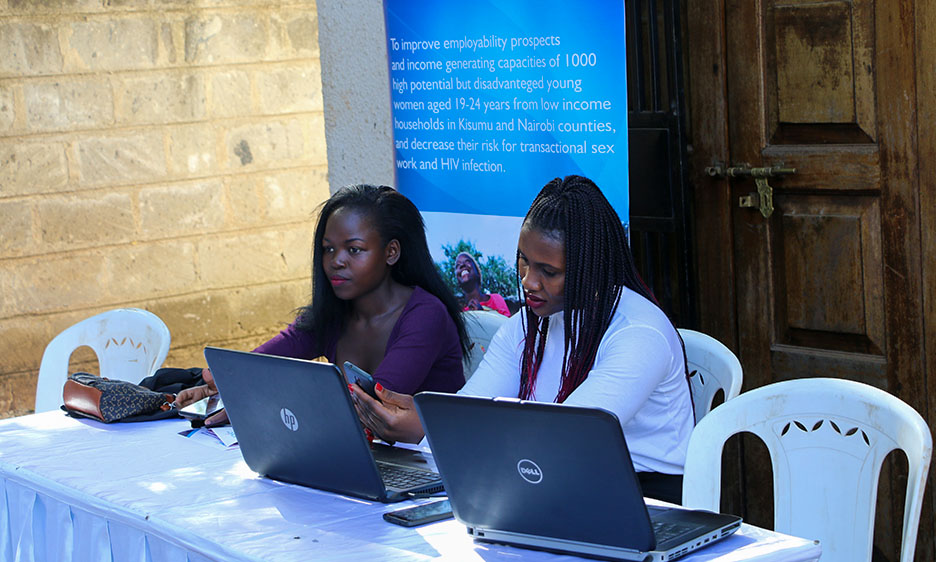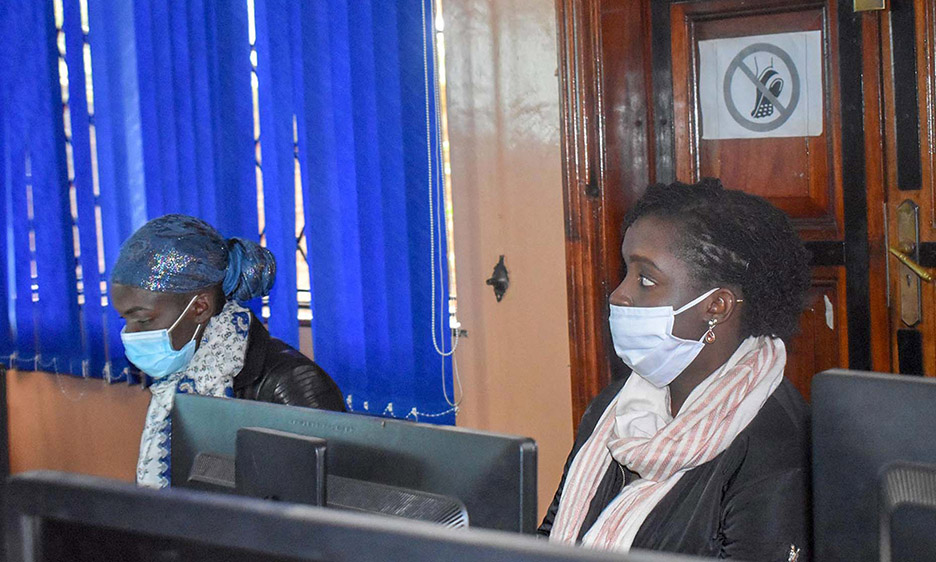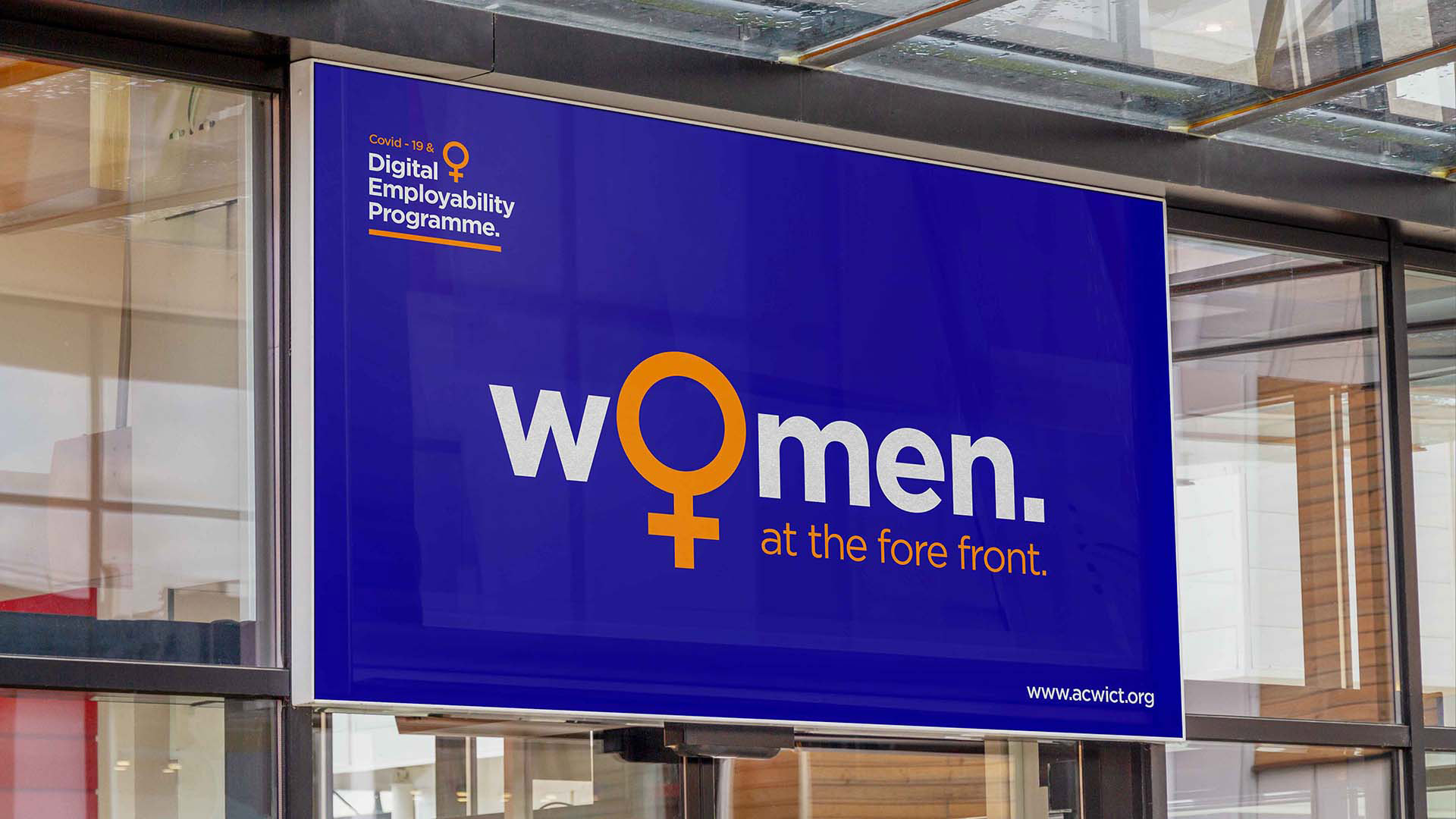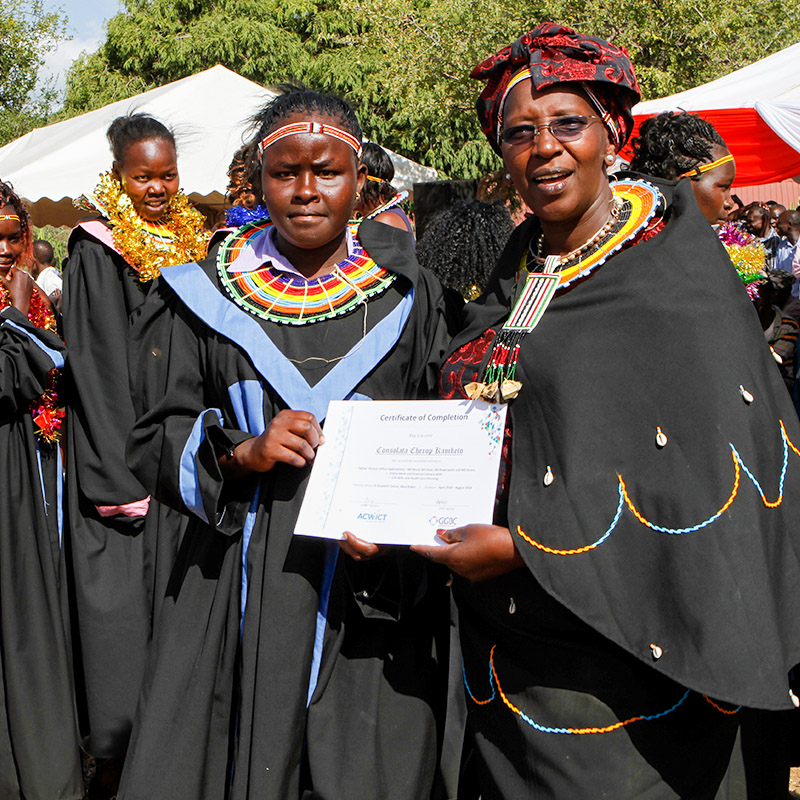Overview
ACWICT has received funding support from the UKAID to equip 1,000 unemployed/underemployed young women aged 18-34 years from informal settlements and rural Kenya, including those who lost their jobs/business opportunities as a result of the COVID-19 pandemic with market-driven online/digital work skills to enable them to become re-employed or secure new employment and business opportunities
Program goals
The COVID-19 and Digital Employability Project is a COVID-19 response funded by the UK Government Digital Access Programme to support 2,000 unemployed/underemployed young women aged 18-34 years from informal settlements and rural Kenya, including those who lost their jobs/business opportunities as a result of the COVID-19 pandemic with market-driven online/digital work skills to enable them to become re-employed or secure new employment and business opportunities. The outbreak of Covid-19 and the resulting control protocols resulted in lost employment/job and business opportunities globally. In Kenya, the loss of employment/job opportunities was most experienced among young women from urban informal settlements and rural areas who, under normal circumstances, are more affected by unemployment/underemployment or economic inactivity. The young women were left vulnerable with no source of income, further compounding existing gender inequalities and vulnerabilities for women and girls, increasing risks of abuse, and gender-based violence arising from heightened anxiety, economic and other forms of tension at the household level. As an organization dedicated to promoting the wellbeing of women and girls, we were deeply concerned with how COVID-19 was threatening their lives and those of the communities that we serve. There existed/exists an immediate need/opportunity to help young women develop market-driven digital skills that will enable them to secure employment or get re-employed. This will help stem the current and long-term effects of Covid-19 on their lives and those of their families and communities. The programme was implemented in two phases. The first phase was implemented from May 2020 – March 2021 targeting 1,000 young women; while the second phase, targeting the same number of young women was rolled out between December 2020 and May 2021.




We trained over 900 women across all informal settlements in Kenya with a robust and flexible digital system
Our Approach
Virtual delivery of training
Virtual mentorships
Job placements
Results and Impact of the programme
At the end of the programme, the young women participants of the programme gained: increased digital employability skills and mentorship; increased household income/economic stability as a result of being linked/connected to digital jobs; increased awareness on Covid-19 safety guidelines for themselves and their families; reduced anxiety, economic tensions and gender-based violence resulting from increased income for the young women participating in the programme




